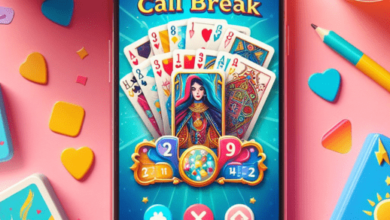Ludo Myth: 5 Lesser-Known Facts That Will Leave You Fascinated

The Origins of Ludo: Uncovering its Ancient Roots
Ludo’s history is as intriguing as its gameplay. The game has its roots in the ancient Indian game of Pachisi, which dates back over 1,500 years. Pachisi was a popular game played by Indian royalty and nobility, known for its strategic elements and royal connections. The Ludo game, with its simple gameplay and colourful design, evolved from this ancient predecessor to become a beloved board game enjoyed by people of all ages worldwide.
Lesser-Known Fact #1: The Surprising Connection to an Indian Game
Ludo’s origins are deeply intertwined with the ancient Indian game of Pachisi, revealing a fascinating connection that spans centuries and continents. The similarities between the two games highlight the enduring influence of Indian board game traditions on global gaming culture.
Shared Origins of Ludo and Pachisi
The striking resemblance between Ludo and Pachisi is no coincidence. Both games share common gameplay elements, such as moving pieces based on dice rolls and racing to the finish line. This shared heritage underscores the deep cultural roots of Ludo and its lasting connection to the rich tapestry of Indian gaming traditions.
Lesser-Known Fact #2: The Role of Ludo in World War I
During World War I, Ludo served as a source of entertainment and camaraderie for soldiers amidst the hardships of war. Its presence on the front lines brought moments of respite and relaxation to troops, highlighting the game’s unexpected role in boosting morale during challenging times.
Entertainment for Soldiers
In the midst of wartime challenges, soldiers decided to play ludo as it would provide them with a much-needed distraction and a way to unwind. The game’s simple yet engaging gameplay offered soldiers a brief escape from the realities of war, fostering camaraderie and friendly competition among troops.
Ludo’s Symbolism During the War
Beyond its role as a form of entertainment, Ludo also held symbolic significance during World War I. The game’s emphasis on strategic thinking and calculated risks mirrored the strategic decisions faced by military leaders on the battlefield, making it a poignant reminder of the complexities of war.
Lesser-Known Fact #3: Ludo’s Influence on Popular Culture
Portrayal in Literature and Film
Ludo may be known as a simple board game, but its influence extends far beyond the tabletop. This classic game has made appearances in various literary works and films, symbolising themes of chance, strategy, and camaraderie. From being a metaphor for life’s unpredictability to showcasing characters bonding over a game, Ludo has cemented its place in popular culture in subtle yet impactful ways.
Cultural References and Merchandise
Ludo’s iconic board with its colourful tracks and distinctive gameplay has become a recognisable symbol in popular culture. From references in music lyrics to its incorporation in fashion and merchandise, Ludo has transcended its origins as a traditional game to become a cultural touchstone. Its nostalgic appeal and universal recognition have inspired artists, designers, and creators to infuse the essence of Ludo into various forms of art and merchandise.
Lesser-Known Fact #4: The Psychological Benefits of Playing Ludo
Cognitive Development and Strategic Thinking
Playing Ludo involves critical thinking, decision-making, and strategic planning, making it a mentally stimulating activity. The game requires players to assess situations, anticipate opponents’ moves, and make calculated decisions to advance their pieces. By engaging in Ludo regularly, players can sharpen their cognitive skills, enhance their problem-solving abilities, and foster strategic thinking.
Lesser-Known Fact #5: Ludo’s Global Appeal and Variations
Regional Adaptations and Rule Variations
While Ludo is widely popular in its traditional form, different regions around the world have put their own spin on the game. From alternate rules and variations in gameplay to unique board designs and themes, Ludo has evolved into diverse versions across cultures. These regional adaptations not only add a layer of novelty to the game but also reflect the creativity and diversity of gaming practices worldwide.
Ludo Tournaments and Competitions Worldwide
The global appeal of Ludo is evident in the rise of Ludo tournaments and competitions held internationally. Players showcase their skills, strategies, and competitive spirit in these events, vying for glory and recognition in the Ludo community. These tournaments not only bring together enthusiasts from different backgrounds but also highlight the competitive aspect and depth of gameplay that Ludo offers on a competitive level.
Conclusion: Appreciating the Rich History and Intriguing Facts of Ludo
As we unravel the lesser-known facts about Ludo, it becomes apparent that this beloved game holds a special place in the realms of culture, psychology, and global gaming. From its influence on popular culture to the psychological benefits it offers and its diverse adaptations worldwide, Ludo continues to captivate players of all ages. By appreciating the rich history and intriguing facts behind Ludo, we gain a deeper understanding and admiration for this timeless game that has brought joy and entertainment to generations. Let’s roll the dice, move our pieces, and celebrate the enduring legacy of Ludo in all its colourful glory!




